06/09: Leelanau Peninsula
Category: General
Posted by: The Agnew Family
The Leelanau Peninsula is the land between Lake Michigan and the Grand Traverse Bay. The steep terrain and large bodies of water produce a milder microclimate than the more temperate areas further inland. The peninsula is known as one of the best Michigan wine regions and is also a productive fruit region growing apples and tart cherries.
First stop on our journey up the peninsula is the picturesque village of Sutton Bay.
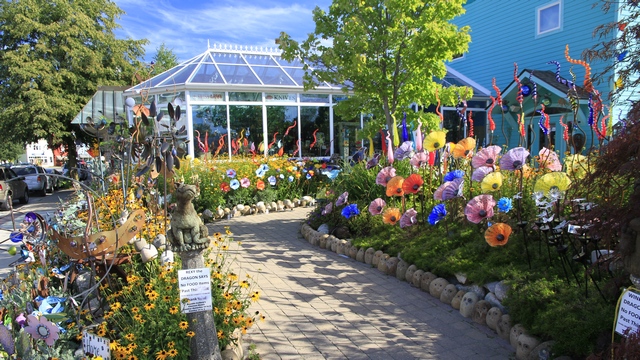
Couldn't resist wandering around this store. Somehow I managed to not buy anything.
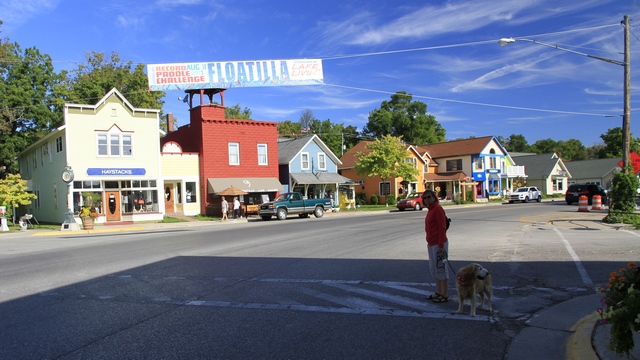
The main street in Sutton Bay is almost as inviting as the garden store. We purchased a couple of fresh croissants for breakfast (chocolate for Ed and cream cheese for me) that were amazing.
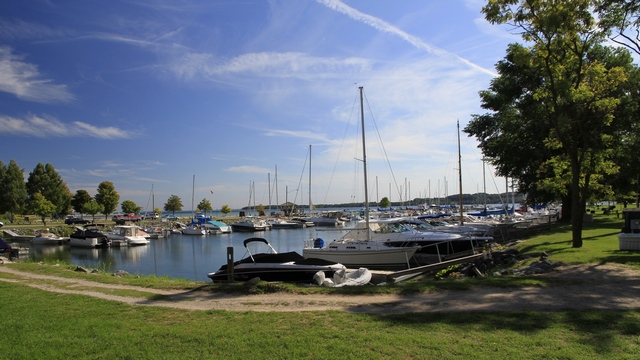
The harbor at Sutton's Bay. I can certainly understand retiring to this cute village.
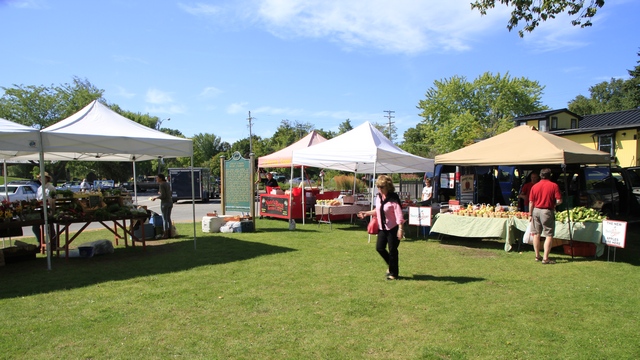
Northport is another cute village. Today was market day. Zaph managed to get lots of pets here.
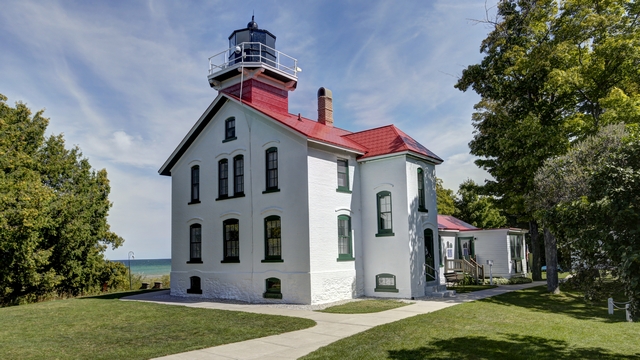
At the far end of the peninsula is the Grand Traverse Lighthouse which was built in 1852. The lighthouse was hosting an interesting exhibit of aerial photographs of Michigan Lighthouses.
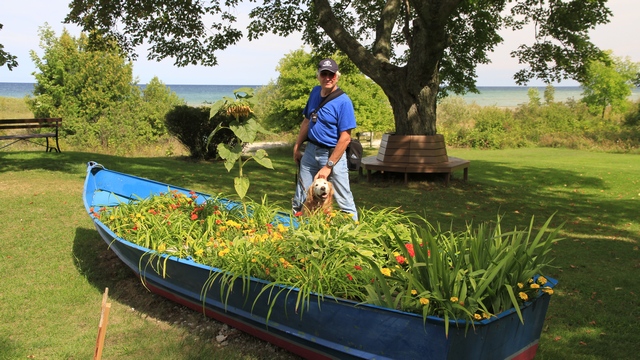
My boys.
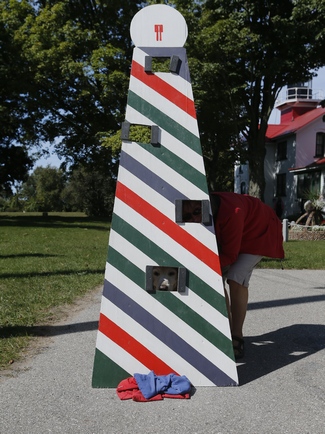
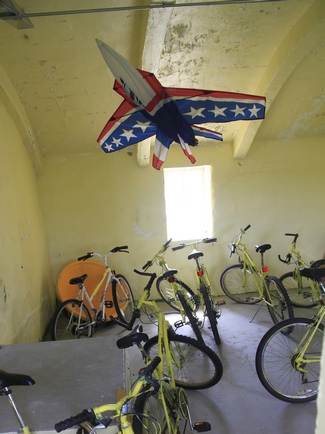
Zaph is such a co-operative fellow --- he really didn't want to look through the hole but he did it for his dad with a bit of mom's help. Just north of Northport is the Woolsley Memorial Airport. Ed peeked in the window of the airport terminal and the photo on the right is what he saw. Pilots can borrow the bikes to ride into town.
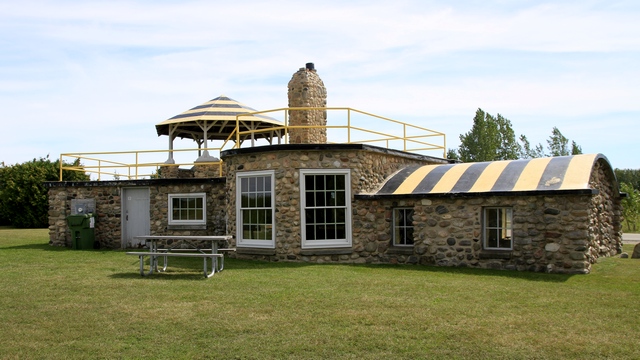
The airport terminal.
Leland is a small town on Lake Michigan on the west side of the Leelanau Peninsula. The town is famous for it's "Fishtown District".
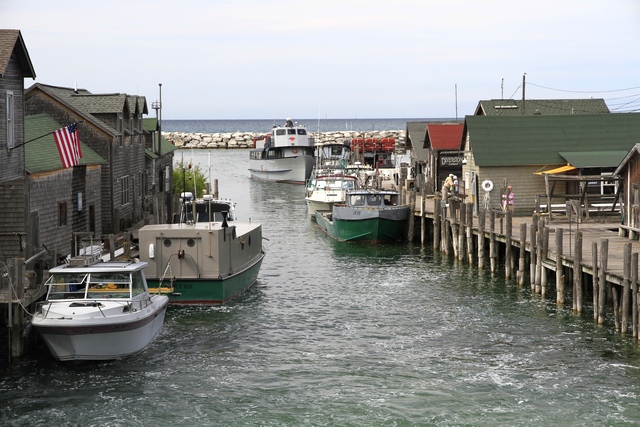
As early as 1880, commercial fishermen sailed out of the harbor to catch trout and whitefish, building wooden shacks where they processed their catch and serviced their fleet. Today, the historic fishing settlement and two fish tugs are owned by a non-profit organization, Fishtown Preservation Society. Fishtown is home to a working fishery and a thriving charter fishing business. The riverfront is lined by a boardwalk and quaint shacks that have been converted into tourist shops.
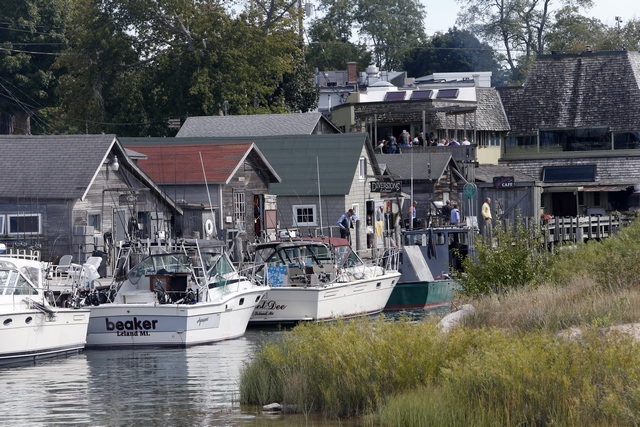
First stop on our journey up the peninsula is the picturesque village of Sutton Bay.

Couldn't resist wandering around this store. Somehow I managed to not buy anything.

The main street in Sutton Bay is almost as inviting as the garden store. We purchased a couple of fresh croissants for breakfast (chocolate for Ed and cream cheese for me) that were amazing.

The harbor at Sutton's Bay. I can certainly understand retiring to this cute village.

Northport is another cute village. Today was market day. Zaph managed to get lots of pets here.

At the far end of the peninsula is the Grand Traverse Lighthouse which was built in 1852. The lighthouse was hosting an interesting exhibit of aerial photographs of Michigan Lighthouses.

My boys.


Zaph is such a co-operative fellow --- he really didn't want to look through the hole but he did it for his dad with a bit of mom's help. Just north of Northport is the Woolsley Memorial Airport. Ed peeked in the window of the airport terminal and the photo on the right is what he saw. Pilots can borrow the bikes to ride into town.

The airport terminal.
Leland is a small town on Lake Michigan on the west side of the Leelanau Peninsula. The town is famous for it's "Fishtown District".

As early as 1880, commercial fishermen sailed out of the harbor to catch trout and whitefish, building wooden shacks where they processed their catch and serviced their fleet. Today, the historic fishing settlement and two fish tugs are owned by a non-profit organization, Fishtown Preservation Society. Fishtown is home to a working fishery and a thriving charter fishing business. The riverfront is lined by a boardwalk and quaint shacks that have been converted into tourist shops.
